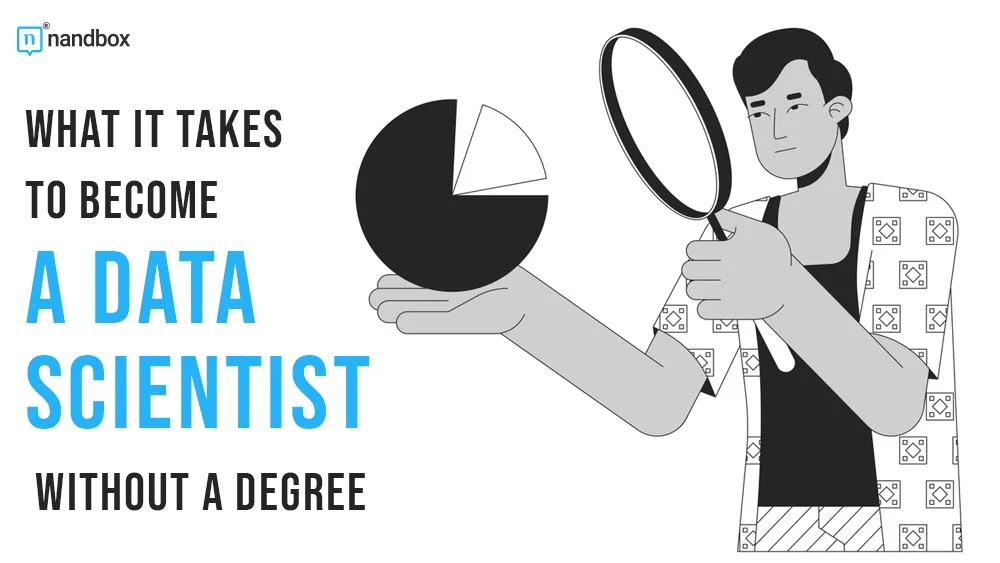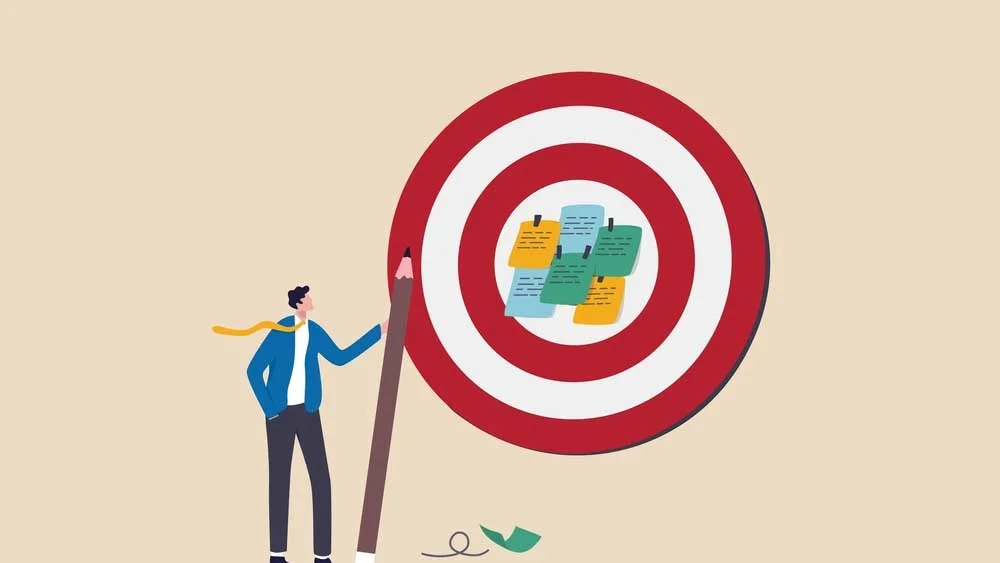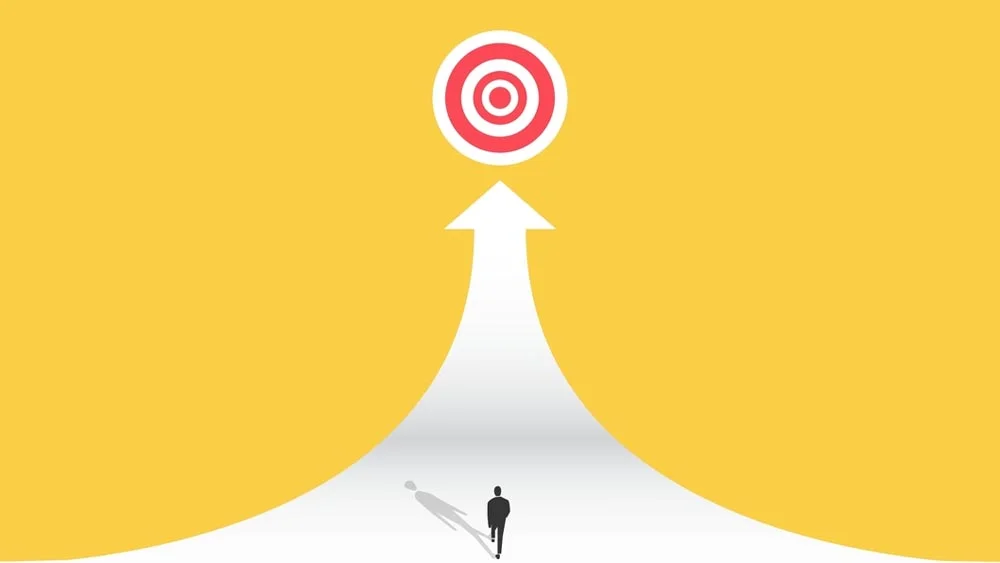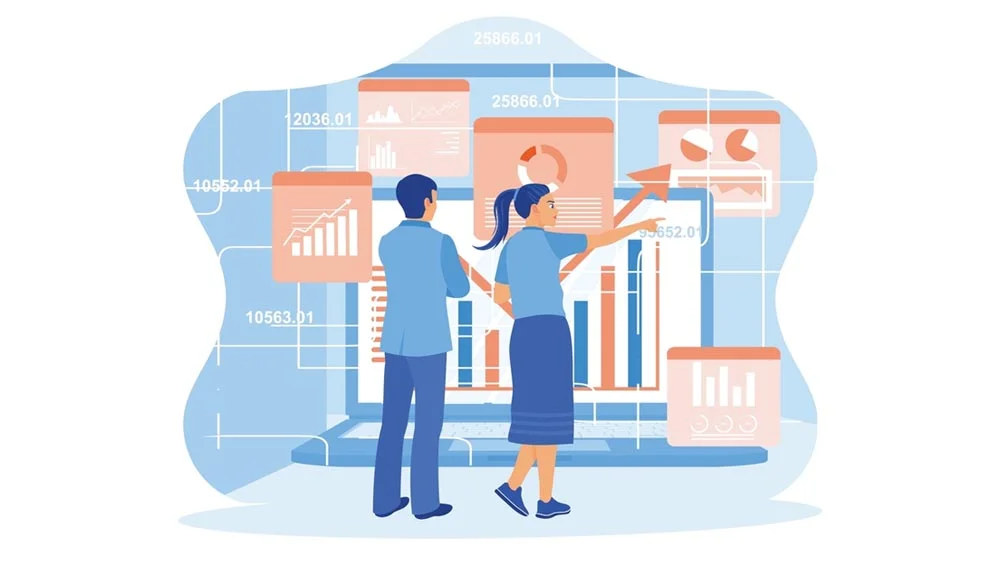Data science is becoming more important as companies look for ways to use information effectively. It’s not just for tech companies—almost all industries use data science to make smarter decisions. If a company has data, it will likely benefit from data science. You’ll see data science in action in areas like retail, finance, healthcare, manufacturing, and energy. Is it possible to become a data scientist without a degree? The short answer is yes, but exactly what it takes is a longer answer. Let’s get into it.
What Is Data Science?
Data science is a field that combines math, computer programming, and business skills to make sense of inputs. Data scientists work with large amounts of information to find patterns and trends. This helps create models that predict future events and behaviors.
Data science is used in many areas and is expanding quickly. In healthcare, it helps predict disease outbreaks and tailor patient care using data from wearable tech. Retailers use it to understand customer habits, manage inventory, and improve the shopping experience. In finance, it is key to managing risk and detecting fraud by analyzing transaction data. It even helps in urban planning for tasks such as managing traffic and developing smart cities.
Also, data science connects with related fields like machine learning and AI. Data science focuses on analyzing data to gain insights. Machine learning, a part of AI, uses algorithms to help computers learn from data and make predictions. AI, the broadest concept, involves creating systems that perform tasks requiring human-like intelligence.
Can I Become a Data Scientist Without a Degree?
Yes. While a degree is helpful, it’s not the only path into the field. Employers are often more interested in your skills and experience than your formal education.
There are several ways to break into data science without a degree. Bootcamps offer intensive training and practical experience in a short time. You can also learn on your own using free online courses, tutorials, and community forums. More importantly, building a strong portfolio with personal projects and getting hands-on experience through internships or freelance work will make you a competitive candidate.
Certificates are also useful. They show that you’ve gained specific knowledge and are committed to the field. Sure, a certificate alone won’t be enough to land a job, but it can help you get interviews and prove your skills when it’s combined with a solid portfolio and practical experience.
What Exactly Will I Do?
A data scientist’s job involves various key tasks, including:
- Collecting data from various sources;
- Enhancing methods to capture all necessary information for comprehensive analysis;
- Cleaning and organizing both structured and unstructured data to make it ready for analysis, checking data for accuracy and consistency;
- Analyzing large datasets to discover trends and insights:
- Applying algorithms and techniques to build and refine models that predict outcomes;
- Presenting findings in a clear and understandable way to stakeholders;
- Offering solutions and strategies based on data analysis to solve business problems.
Now, with some of the basics covered, let’s look at how to become a data scientist.
How to Become a Data Scientist Without a Degree
Breaking into data science without a degree is entirely achievable with the right approach. Here’s a detailed guide to help you get started:
1. Set Your Goals
Begin by defining what you want to achieve in data science. Think about the specific areas that interest you, like machine learning, data analysis, or data engineering. With clear goals, it becomes easier to stay focused and motivated throughout your learning journey.
Consider what kind of roles you aim for and the skills you need to develop. Whether you want to work in market analysis, cloud computing, or another area, knowing your end goal will guide your preparation.
2. Choose Your Learning Path
There are two main ways to learn data science without a degree. The first is self-learning, which involves using online resources such as tutorials, courses, and books. This path requires a lot of self-discipline and research to make sure you’re learning the right skills. In fact, many people struggle with this approach because it’s difficult to know what to study next and how to use the knowledge effectively.
Alternatively, you can enroll in a data science boot camp or online course. These programs offer structured training and tend to include hands-on projects. Boot camps are designed to teach the skills you need to start a career in data science, like learning basic programming and using software, and can be a fast-track way to gain practical experience.
3. Showcase Your Skills
Once you’ve acquired the necessary skills, it’s time to show them off. Create an online portfolio to display your projects and accomplishments. Include any personal or boot camp projects that demonstrate your abilities. A well-crafted portfolio is a key factor for potential employers to see what you can do.
You could also create a section on your portfolio site where you cover data science topics or showcase projects you’ve worked on. Participating in data science competitions or contributing to open-source projects will further highlight your expertise and dedication.
4. Network and Build Connections
Whatever the job is, networking is one of the most helpful ways to find job opportunities and make industry connections. Use professional networking platforms like LinkedIn to connect with other data scientists and industry professionals and attend events in your local area.
5. Keep Learning and Adapting
The field of data science is always evolving, so don’t forget the importance of continuous learning. Stay up to date with the latest tools, techniques, and trends. This could mean taking additional courses, attending workshops, or simply staying informed through industry news and research.
How Long Does It Take to Become a Data Scientist?
If you’re aiming to become a data scientist without a degree, the time it takes varies based on your starting point, how much effort you put in, and the resources you use. For someone new to the field, intensive boot camps or self-study get you job-ready in about 8 to 12 months. If you’re learning while juggling other responsibilities, it could take a bit longer, up to a couple of years.
It all depends on how quickly you pick up the skills. As you already know, you’ll need to get comfortable with programming languages like Python or R, learn how to analyze data, and understand the basics of machine learning. If you’re looking for ways to speed things up, consider working on real projects, getting internships, or doing freelance work.
In the end, your dedication and how you use available resources will play a big role in how quickly you transition into a data science career.
Can You Qualify for Data Science Roles Without Traditional Experience?
Entry-level positions tend to have fewer requirements regarding previous experience or education. This means hiring managers are more open to different ways you might have developed your skills. For example, if you’ve worked as a marketing coordinator, you might have used data to track campaign performance and identify trends.
If your past jobs, internships, or volunteer work involved data science tasks, you might be eligible for more advanced roles. A project manager who has handled project metrics and performance analysis can use that experience to apply for specialized data science positions.
Whatever it is, make sure your resume highlights the relevant responsibilities and includes examples of your work.
What Is the Future Trajectory Like for a Data Scientist?
So, you’ve nailed the entry-level position, or maybe you’re just curious about where your career could potentially lead. Here’s a simple overview of the career stages:
- Data analyst—This entry-level role involves collecting, cleaning, and analyzing data to provide insights that help with decision-making.
- Associate data scientist—In this role, you work on more complex tasks, like developing machine learning models and contributing to data-driven projects within your organization.
- Data scientist—This is where you use your skills in statistics, machine learning, and programming to solve tough business problems.
- Senior data scientist—With more experience, you can advance to a senior position where you take on leadership roles, mentor junior team members, and guide the data science strategy.
- Lead data scientist—As a lead data scientist, you oversee projects, work with various teams, and provide strategic and technical direction for data science initiatives.
- Director/VP/SVP— In these high-level roles, you focus on the organization’s overall data strategy, manage teams, and drive data-based decisions at the executive level.
Final Thoughts
Hopefully, this clears things up and gives you a clearer idea of the path ahead and how to become a data scientist without a degree. While success in this field won’t come overnight, it’s possible to make significant career progress in a year. Most importantly, you’ll be able to avoid the time associated with long formal education and unnecessary debt from tuition.
Remember that good tutors and mentors provide a strong foundation, but the rest is up to you to take. What you achieve in that year of change really depends on how much you put into it. The journey is rewarding, though—being able to make a real impact and contribute meaningfully to an organization is both fulfilling and fun.






